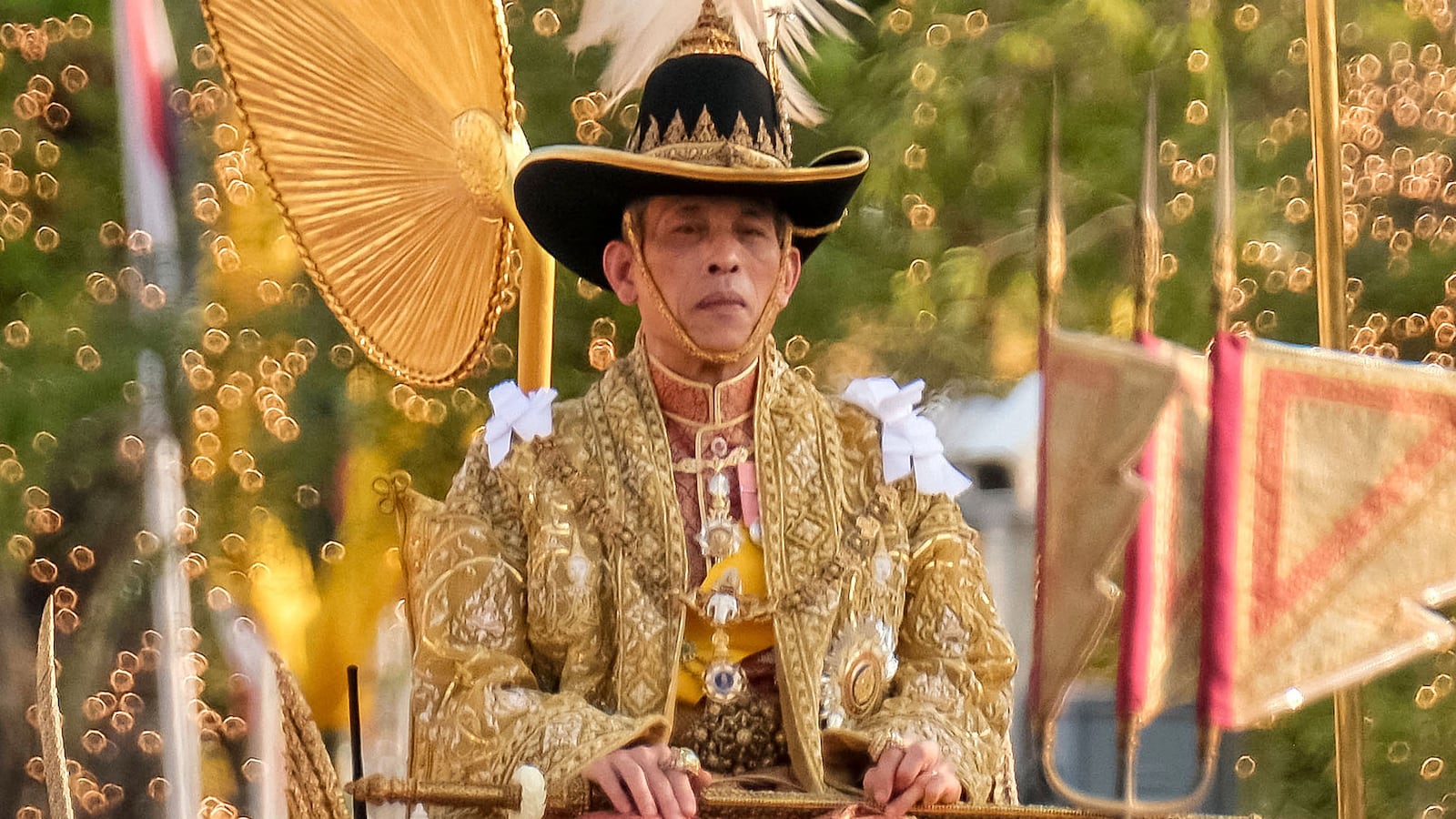The billionaire king of Thailand, long accused of profligacy and extravagance, is alleged to have built up an extraordinary fleet of 38 jets and helicopters for the exclusive use of the Thai royal family.
The public accusation, made to London’s Financial Times by leading Thai opposition leader Thanathorn Juangroongruangkit, constitutes one of the most direct challenges ever made to Thailand’s lese-majeste rules, which prohibit criticism of the family. Under the harsh legislation, criticizing the semi-divine royal family or their household, which includes their pets, is punishable by up to 35 years in jail.
The fleet of aircraft apparently includes four Boeing and three Airbus commercial aircraft, three Russian-made Sukhoi Superjet 100s, four Northrop F5-E light fighter jets and 21 helicopters, including three that are due to enter service next month. Maintenance, fuel, ground support and other costs of the fleet total almost $64m for the coming fiscal year, according to documents shared with the FT.
Opponents of the commanding position and privilege of the Thai royal family have been emboldened in recent months as rallies by student protesters against the establishment have seen their numbers swelling. Thailand is battling a deep recession brought about by COVID-19 and the collapse of the pivotal tourist trade.
A leading commentator on Thai affairs, the journalist and writer Andrew Marshall, a former Reuters bureau chief in Bangkok who is now banned from entering Thailand but has a huge online following inside the country, told The Daily Beast that the monarchy was facing “a total collapse in popularity in Thailand” with ordinary Thais no longer even bothering, for example, to stand up when the National Anthem is played before movies at cinemas.
The lavish spending of King Maha Vajiralongkorn, who lives in Germany but jets back to Bangkok for official events, has long been an open secret in the country.
He is said to be one of the world’s richest royals, worth around $30 billion, having seized control of billions of dollars’ worth of company shares and other royal property formerly held by the Crown Property Bureau.
His spending is legendary. At the beginning of the lockdown it emerged that the 67-year-old had been living for several years at the high end Grand Hotel Sonnenbichl in Bavaria with a retinue of 20 concubines, including his fourth wife.
The story was picked up by tabloids around the world after the hotel sought an exemption from rules requiring properties to close because the king was living there full time and was occupying the entire property. Marshall found documentation showing that the 20 women had all been given the same honorary surname.
There have long been concerns about the king’s unpredictable behavior.
“He gets regularly furious with people and expels them from his circle and throws them in jail before sometimes reinstating them,” Marshall told The Daily Beast.
The latest to suffer this fate was his “official” mistress, Sineenat Wongvajirapakdi, 35, who was named Chao Khun Phra, which means “royal noble consort,” shortly after he married his fourth wife, Queen Suthida.
In October 2019 it was announced that Sineenat had been stripped of the title in a palace statement that called her “ungrateful” for conducting a rivalry with Queen Suthida.
She is believed to have spent ten months in jail, but last month she was restored to her former position, with a statement published in the government’s Royal Gazette saying Sineenat was “untainted” and therefore entitled to the royal noble consort title and all her previous posts within the palace.
Reports of the king’s life of medieval indulgence in Germany increasingly filter back to the country on social media.
Thailand earlier this year sought to get Facebook to remove a group critical of the monarchy that had more than a million members, but failed in the attempt.
“The Thai authorities do try and geo-block specific posts, but they can’t really do that with social media,” says Marshall, meaning the king’s peccadilloes are now widely read about domestically.
However, the new public intervention to the FT by Thanathorn, who is one of the most popular opposition figures in Thailand, despite having been banned from politics by the king earlier this year, represents an unprecedented escalation.
“People are getting furious about this, especially when you look at the macroeconomy,” Thanathorn told the Financial Times.
“Thailand’s GDP growth is projected to be negative 8 percent at best this year, so we need all the resources we have to spend on the recovery.”
Thanathorn was leader of Future Forward, a youth-backed opposition party that became the third largest in parliament after last year’s election. It was subsequently banned, but the party regrouped under a new name and has now managed to obtain an inventory of royal aircraft seen by the FT.
Thailand’s youth protest movement is demanding the dissolution of parliament, an end to the harassment of political dissidents, the writing of a new constitution, and reforms of the monarchy.




